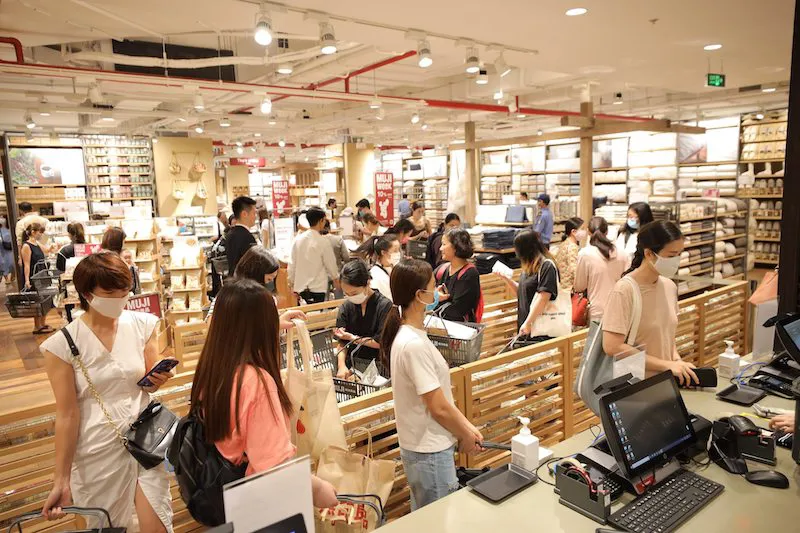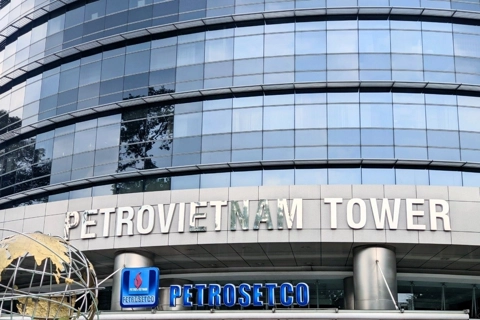Vietnam’s fashion industry to focus more on sustainability
Fashion brands, manufacturers and retailers are increasingly preparing to adopt new production practices.
The trend of fast fashion becomes gradually saturated as more consumers are aware of the industry as the world’s second-largest polluter. Sustainability-oriented/eco-friendly fashion is forecast to grow among local and foreign brands in Vietnam in the coming time, local insiders have said.
| Canifa's store in Hanoi. Photo: Canifa |
The US$2.4-trillion-fashion industry worldwide loses about $500 billion of value every year due to the lack of recycling and clothes that are thrown into landfills before ever being sold, according to the UN Alliance for Sustainable Fashion.
Meanwhile, sustainable fashion is the supply, production, and consumption of fashion products designed in a way that ensures environmental, social, and economic sustainability.
“It is forecast to be an inevitable trend in the context that Vietnamese people’s income is gradually improving and young people’s awareness of responsibility for fashion consumption and the environment is increasing,” noted the latest report conducted by Virac, a Vietnamese market research.
Local consumers, especially the youth, have risen seeking as well as willing to pay more for sustainable goods. Nearly 70% of surveyed consumers said that they chose to use eco-friendly products, which save water and electricity, and to separate waste into types as the most common actions to save the environment, according to the survey conducted by Q&Me Vietnam market research.
As Vietnam is chosen as the attractive destination for foreign brands in both consumption and production scale, well-known brands such as Zara, Adidas, Uniqlo and Muji entered the country with eco-friendly products to meet the demand.
After a long time of pursuing the strategy of producing and selling more and more every few weeks, Inditex-owned Zara switched to its green manufacturing plan over the past years. The plan has been materialized through using eco and recycled materials for production.
“The recycled products reduce the consumption of water, energy and natural resource, as well as textile waste,” the company’s representative told Inside Retail.
Inditex said it, in collaboration with MIT, has created the MIT-Spain Inditex fund for sustainability to promote initiatives from Spanish universities or research centers that could help advance the circular economy.
| Muji store in Ho Chi Minh City. Photo: Muji Vietnam |
Entering Vietnam in 2019, the Japanese apparel retailer Uniqlo also took the same move as the Spanish-based brand Zara. The first action from the Re.Uniqlo initiative is recycled down jackets taken from 620,000 used units gathered from customers around Vietnam.
“The Japanese retailer also collected used garments in six outlets in Hanoi and Ho Chi Minh City and delivered the wearable clothing to vulnerable communities,” a representative from Uniqlo Vietnam told Hanoitimes.
Fashion brands, manufacturers and retailers are increasingly preparing to adopt new production practices, according to Quach Kien Lam, CEO and founder of GreenYarn Bao Lan Company which produces environmentally friendly fabrics.
“It takes time for brands to adjust their factories and to be willing to accept the higher cost of sustainable products,” he told a recent talk show in Ho Chi Minh City.
Data from a German market research company Statista shows that the annual growth of the Vietnamese fashion market was estimated at 8.8% for the 2019-23 period.
Last year, revenue from the industry dropped over 10% compared to 2019 due to the impact of the Covid-19 pandemic. In particular, clothing still contributed a great sale with more than 50% of the industry’s total revenue.
Social networks and e-commerce platforms such as Facebook, Lazada, Sendo, and Tiki have achieved remarkable growth as the majority of Vietnamese people are familiar with shopping online.













